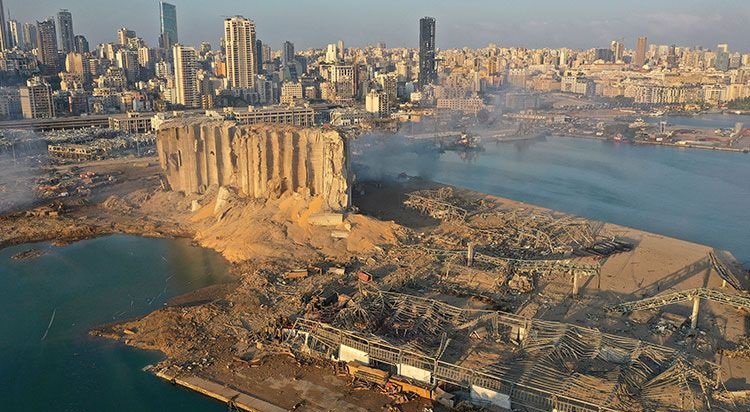Georgian Maritime Transport Agency: ‘Georgia has nothing to do with deadly Beirut blast’

The explosion killed at least 135 people and injured thousands in Beirut. Hundreds have been reported missing. Photo: CNN.
The Georgian Maritime Transport Agency (MTA) has responded to conjecture in the international press concerning the explosion on August 4 in the Lebanese capital of Beirut, noting it is not known whether the ammonium nitrate stored in the city’s port was imported from Georgia.
Moreover, the MTA notes, transportation and storage of received cargo are the responsibility of importing countries.
In the past few days since the blast shook Beirut, international media outlets have written that the ammonium nitrate, imported to Lebanon in 2013, may have been manufactured in Georgia.
In September of 2013, the Moldovian-flagged ship Rhosus was detained after a Port Security Service inspection in Beirut, which found a number of violations... The company that owned the ship declared itself bankrupt and abandoned the ship, crew members and cargo at the port of Beirut. Georgian citizens were not among the crew members. Later the cargo was unloaded and stored at the port of Beirut”, reads the official statement of MTA.
Rustavi Azot LLC, one of the largest Georgian exporters of ammonium nitrate, says that the company was under different management at the time when the ammonium nitrate may have been exported to Lebanon, and that they have no exact information as to where and when the chemical supply in question was manufactured.
The company also noted that the ammonium nitrate cargo in question had been stored in Beirut since 2013, which is a violation of safety storage standards for the chemical.
The degradation in the structure of ammonium occurs together with the humidity of the air [in just] six months”, Rustavi Azot LLC said.
The MTA notes that once every two years international inspections are carried out in Georgian ports in order to study their compliance with safety standards.
The explosion killed at least 135 people and injured thousands in Beirut. Hundreds have been reported missing.
 Tweet
Tweet  Share
Share